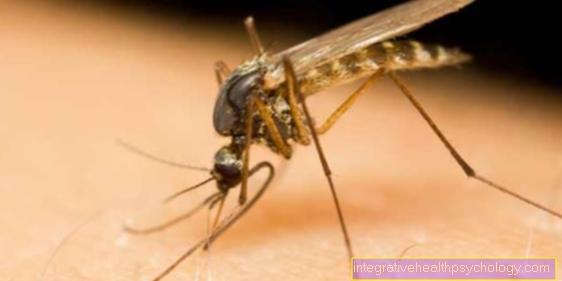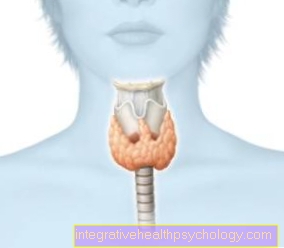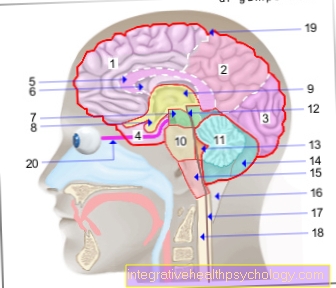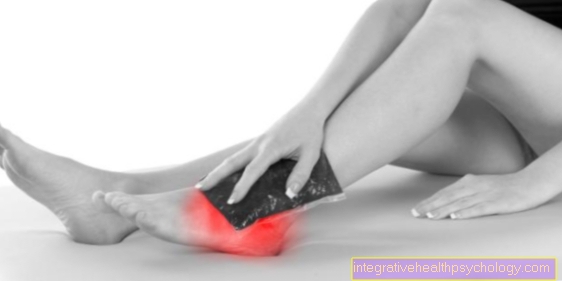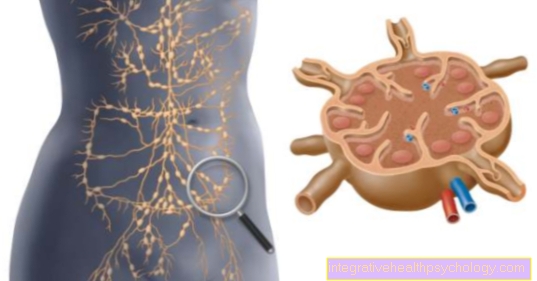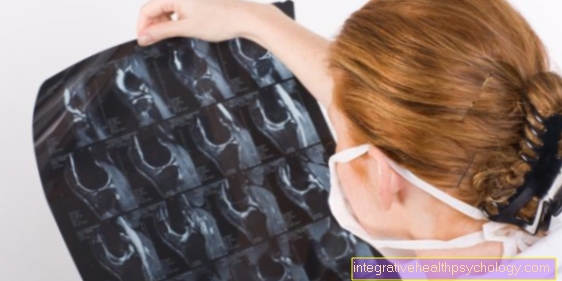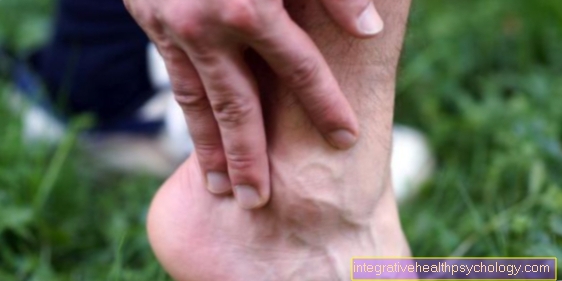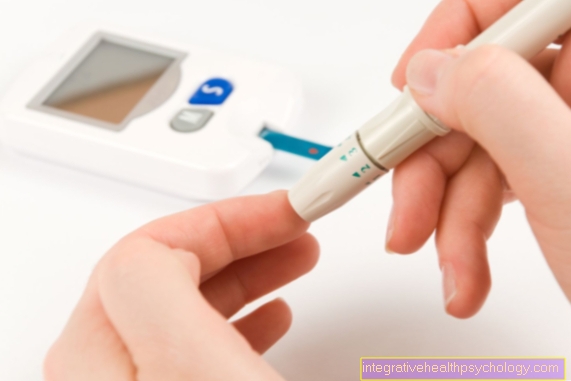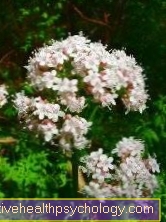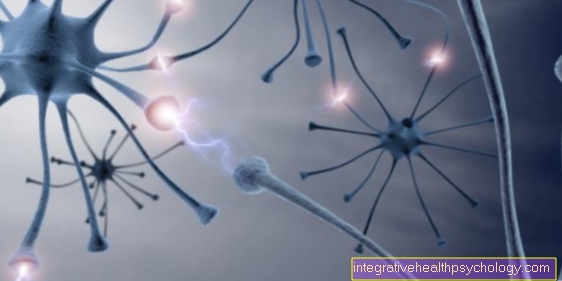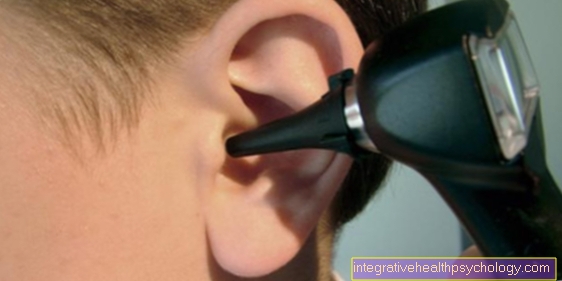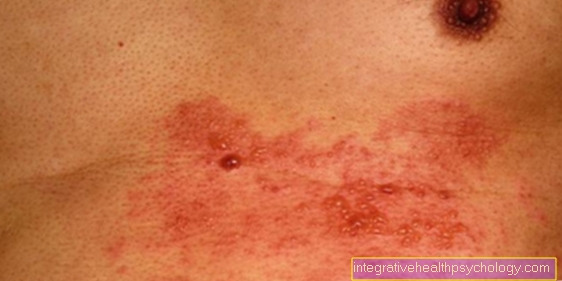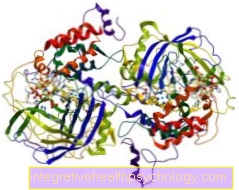ginkgo
Synonyms in a broader sense
Medical / herbal: Ginkgo bilboa
Ginkgo biloba:
The ginkgo tree belongs to the Ginkgoaceae family. Ginkgo actually Ginkyo (translated from Chinese) means silver apricot.
Alternatively, the ginkgo tree is also:
- Fan tree
- Fan leaf tree
- Elephant leaf tree
- Duck foot tree
- Fan leaf tree
- Girl hair tree
or - japanese temple tree
called.
Explanation / definition
Ginkgo has been around for centuries traditional chinese medicine as Therapeutic at Circulatory disorders used.
The ginkgo extract is obtained from the leaves of the ginkgo tree. Various studies have shown that the active ingredients from the ginkgo extract are therapeutically effective. Ginkgo is most often used in the therapy of Circulatory disorders in the brain and venous diseases used.
The tree
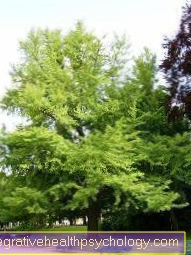
The ginkgo tree, also known as the temple tree, is the only remaining representative of the ginkophytes, a division of the seed plants (spermatophyta). It was also native to Central Europe until 30 million years ago, but then moved to Southeast Asia and back. The 30 to 40 meter high ginkgo tree is a deciduous deciduous tree. In terms of evolutionary history, it is one of the oldest plant species on earth and forms the link between ferns and conifers. So a real department was created for him, the ginkgo plant, which today only includes one species. Ginkgo fossils can also be found in Central Europe. Since all other genera are now extinct, the Ginkgo biloba is considered the oldest fossil in the plant world.
The ginkgo tree is considered a living fossil. Its original forms already existed 300 million years ago. He survived the Ice Age in Southeast Asia and was discovered by Buddhist monks as garden plants by 300 million years ago. The German name Ginkgo is based on a spelling mistake in Japanese Ginkyo in the notes of the German doctor Engelbert Kaempfer, who brought the tree back to Europe from Japan in 1750. The ginkgo is dioecious, which means there are male and female plants.
The name biloba = two-lobed indicates this typical leaf shape. Get medical Special extracts from the leaves used. The seed kernels are also used in traditional Chinese medicine.
Production of the ginkgo extract
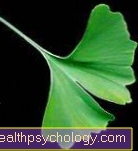
The dried leaves and their preparation, especially highly concentrated dry extracts, are used medicinally. Ginkgo leaves contain flevoglycosides and terpene lactones as the most important pharmacologically active ingredient. In clinical studies, a positive effect has so far only been proven for ginkgo extracts, such as those obtained from the flowers in an acetone-water mixture.
More than 20 process steps are necessary to obtain the dry extract. the dried leaves are first finely ground and then mixed with solvents such as water or alcohol to extract the most important active ingredients. Finally, the liquid extract is dried, ground and usually pressed into tablets together with other excipients.
The leaves of the gingko tree are used in plasters or in medicinal teas. In traditional Chinese medicine, ginkgotees range from asthma to circulatory disorders.
application areas
A large number of pharmacological studies have been carried out with ginkgo leaves, their extract and individual ingredients.
They have been shown to increase blood flow to the brain, prevent free radical damage, improve memory, and slow the progression of Alzheimer's disease. Due to its blood circulation-promoting effect, Ginkgo is also suitable for treating venous diseases.
Application areas:
- organic brain performance disorders (dementia, Alzheimer's disease)
- Difficulty concentrating
- depressed mood / depression
- dizziness
- Ringing in the ears / tinnitus
- a headache
- peripheral arterial circulatory disorders (PAD)
- Venous disease / varicose veins
in Europe, ginkgo extracts have been available in pharmacies for about four decades.
effect
The reason for the positive effect on humans is probably the high concentration of flavonoids and terpenoids. The latter can only be found in a special form (ginkolide and bilobalide) in ginkgo. Some of these substances are so complex that it has not yet been possible to produce them fully synthetically. In today's medicine, the Ginkgo is primarily attributed a blood circulation-promoting effect. It is often given to strengthen the brain.
Recent studies examine the effectiveness of ginkgo for protection against arteriosclerosis (arterial calcification).
The following effects have been proven experimentally:
- Increasing the tolerance of the higher tissue to a lack of oxygen.
- Promote blood circulation in the brain.
- Improvement of the flow properties of the blood (rheology)
- Inhibition of the aggregation (sticking) of blood platelets.
- Influence of central neurotransmitters.
- in activating harmful free radicals.
A positive onset of the effects described above can only be expected after taking several weeks.
Dosage and application
Only Extracts from the ginkgo leaves, the after special manufacturing process are produced, with an enrichment of the ingredients, which must be considered for the ineffective principle. Substances known to cause side effects are removed.
For treatment organic brain performance disorders (dementia) is 120 to 240 mg dry extract daily divided on two or three single doses recommended.
To treat Circulatory disorders or circulatory disorders of the inner ear become 120 to 160 mg dry extract daily divided on two or three single doses recommended.
Depending on the disease is a different duration of treatment it is necessary to have an impact.
At Brain disorders (dementia) is a treatment duration of at least eight weeks required. After a treatment period of three months, it should be checked whether the therapy was successful and should be continued.
A Improvement in arterial circulatory disorders is after six weeks at the earliest expected.
Scientific studies have shown that in the case of circulatory disorders of the inner ear, which can trigger dizziness and tinnitus, a treatment duration of more than six to eight weeks no longer brings any demonstrable benefit.
Dosage form
Ginkgo is available in the following dosage forms:
- drops
- Dragees
- Film-coated tablets
- tea
Ginkgo extracts are found, among other things, as components of various hair shampoos or other cosmetics.
side effect
Overall, side effects are rare.
Ginkgo preparations can rarely cause gastric complaints, headaches or allergic reactions.
Contraindication / Contraindication
As a precaution, preparations made from ginkgo leaves should not be used during pregnancy or breastfeeding. So far there is insufficient scientific knowledge on side effects in this area.
If you are taking medication to inhibit blood clotting at the same time, you should consult your doctor before using Ginkgo.
In principle, a doctor should be consulted before self-treatment.
Manufacturer / trade name
Manufacturers are named as examples and were selected at random. we have with none Manufacturers a personal connection!
Tebonin forte 40 mg N1 100 tablets € 25.95
Tebonin forte 40 mg N2 200 tablets € 47.87
Status: January 2004
Phytopharmaceuticals in Germany
The list of the best-selling herbal preparations led by far the ginkgo:
- ginkgo
- Johannis herbs
- Devil's claw
- Horse chestnuts
- artichoke
- Milk thistle
- Nettle
- Umckaloabo
- Hawthorn
- ivy
A list of all medicinal herbs / medicinal plants that we have already published can be found under: Medicines A-Z.
Disclaimer / Exclusion of Liability
Please note that we do not claim to be complete or correct in any of our texts. The information may be out of date due to current developments.
All details are only excerpts, therefore important information cannot be given.
We expressly point out that all medications may never be discontinued, applied or changed independently and without consultation with your treating doctor.




